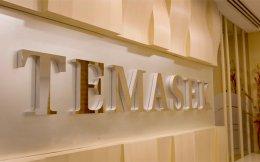The Securities and Exchange Board of India has proposed to ease its regulations for startups to go public, relaxing several requirements including those related to shareholding norms and investor categories.
The capital markets regulator on Friday issued a consultation paper to review its Institutional Trading Platform (ITP) framework and rename it Innovators Growth Platform (IGP) as part of measures to encourage startups to list on stock exchanges.
The consultation paper comes four months after SEBI set up a group to review the ITP framework. The regulator had notified the ITP framework in August 2015 with an aim to facilitate listing of new-age companies in sectors such as e-commerce, data analytics and bio-technology. However, this framework failed to gain any traction and no startup has listed so far.
The group include representatives from the Indian Software Product Industry Round Table (iSPIRT), The Indus Entrepreneurs (TIE), the Indian Private Equity and Venture Capital Association (IVCA), law firms, merchant bankers and stock exchanges.
The regulator has considered easing startup listing norms previously, too. In 2016, it proposed a raft of changes including allowing family offices and hedge funds to invest in startups’ public offerings. But that still wasn’t enough to lure startups.
New proposals
SEBI proposed changes to norms related to eligibility criteria, minimum application size, allocation to investors and minimum offer size, among other regulations.
The regulator said that the minimum net offer to the public should be in compliance with the Minimum Public Shareholding norms and that the minimum offer size should be Rs 10 crore.
SEBI recommended lowering the pre-issue stake held by qualified institutional buyers in startups aspiring to go public. Currently, SEBI norms require that institutional buyers should hold a stake of at least 50% in the startup as on the date of filing of the draft IPO proposals with the regulator. It suggested that startups in which qualified institutional buyers, other regulated entities and accredited investors held 25% of the pre-issue capital for at least two years can go public.
Other regulated entities and accredited investors include pooled investment funds and high-net-worth individuals.
It also proposed to remove the 25% cap on the post-IPO stake by any person in a startup. It also proposed to reduce the minimum application size in the secondary market to Rs 2 lakh from Rs 10 lakh.
SEBI also said that there should not be any minimum reservation of allocation to any specific category of investors and that allocation is proposed to be on a proportionate basis. Currently, SEBI rules require that 75% of the net offer to public should be allocated to institutional investors and the remaining 25% to non-institutional investors.
A related rule that SEBI suggested scrapping is that no institutional investor should be allotted more than 10% of the issue size in case of discretionary allotment.
“In view of the proposed allocation to investors on a proportionate basis, without any reservation, the provision of discretionary allotment is not required. Thus, it is proposed to delete the existing provision,” SEBI said.
In another proposal, SEBI suggested bringing down the minimum number of allottees in the public offering to 50 from more than 200 currently.
The regulator also said that it plans to designation the IGP as the Main Board platform for startups. Also, the startups will have an option to trade under the regular category after completion of one year of listing.
Currently, an entity listed on the ITP has the option to migrate to the Main Board of that stock exchange after expiry of three years from the date of listing.
The regulator has sought public comments on the proposals by 16 November.







